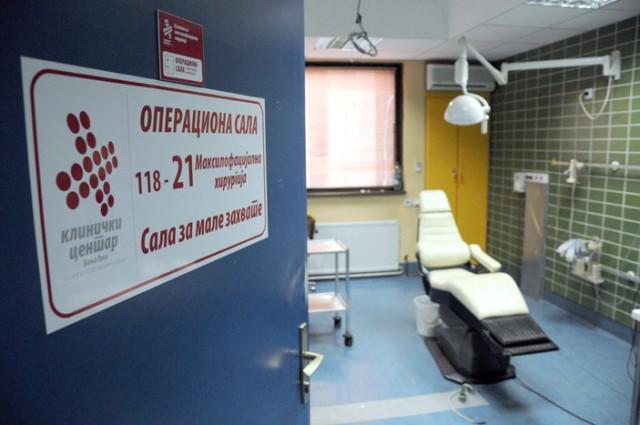
It’s no secret that residents of Bosnia and Herzegovina have to use bribes in order to receive certain medical services, and it’s been that way for years. The medical profession is supposed to be one of the most humane, but it is being undermined by bribery and malfeasance.
It’s no secret that residents of Bosnia and Herzegovina have to use bribes in order to receive certain medical services, and it’s been that way for years. The medical profession is supposed to be one of the most humane, but it is being undermined by bribery and malfeasance.
According to Olivera Mikić, a nurse who works in the surgical wing of a Banja Luka hospital, it is no secret that doctors and other medical staff are happy to accept bribes in the form of gifts or money. She claims that exchanges primarily happen in the privacy of doctors’ consultation rooms, away from the public eye.
“The most common form of bribery is money. The patients and their families who offer bribes to doctors often do so because they think money will motivate the doctor do a better job, therefore, they are just as responsible for this problem as are the doctors who accept the money. Maybe the doctor will pay more attention to the patient. Maybe they will run a couple extra tests that are likely not necessary just to make it seem like they are taking a greater interest,” explains Mikić.
Mikić adds that it is a common belief in Bosnia that it is a matter of honor to give “something extra” to doctors and medical staff that do a good job. She says that doctors rarely ask for money, but also rarely decline to accept it when offered.
Given Bosnia’s difficult economic situation, many residents are not able to set aside money for bribes outside of what they must spend on medications. According to Ana Đukić (64), who lives in Banja Luka, when it comes to bribing, each case is different and it is easy to find examples of both good and bad doctors.
“Once, I tried to give my doctor a drink and a candy bar after my surgery, but he was not very comfortable with that so he invited the nurses in and gave the gifts to them. I also had a negative experience when my daughter needed surgery and the doctor said that we needed a thousand euros just to talk to him. I didn’t have that kind of money so we went to another doctor,” Đukić explains.
She adds that although patients are at fault for creating a habit among doctors of receiving gifts that the government is also to blame for not providing medical practitioners with decent salaries.
“If the government paid them what they deserved, they wouldn’t need to accept bribes and the laws would be stricter towards such practices,” Đukić says.
Retiree Milan Aleksić (80) shares a similar opinion. He is unable to set aside money from his pension for bribes.
“Pensions here are small and medication is expensive. I can take some chocolate to my doctor every once in a while, but I have no money to give him,” he explains. He adds that doctors usually examine patients who are elderly and ill first so that they don’t have to wait long and that other patients are usually happy to let them cut in line.
Many doctors take a strong stance regarding the practice of bribing. Family physician Predrag Subotić says that bribery is not present in family medicine because, according to him, the work of doctors and nurses is very transparent and patients are able to easily notice and report any wrongdoing. He adds that it is important to distinguish between a patient who is trying to compensate his doctor with a chocolate and a doctor who is looking for money in advance of any treatment.
“I personally believe that only 10% of these bribery stories are true. I don’t believe that a doctor who spent his best years and a lot of money on his studies and building a reputation in this noble field would throw all of that out the window for money and gifts. It takes many years to build a career and gain patients’ trust and I think it’s ludicrous to get involved in such matters, especially in today’s world of mass media and the Internet where such stories can spread like wildfire,” Subotić explains.
He reiterates that money and gifts are not worth destroying one’s career over and that the only people who can accept bribes are those with political connections that can protect them from losing their jobs.
Olivera Mikić shares similar sentiments and reveals that she has been in situations where she was offered money and had to decline the offer.
“Patients have offered me bribes, mostly in the form of juices, bananas, or pralines, which I did not refuse out of politeness.” Laughing, she adds, “I have also been offered money, which I never took because I am paid for my job and those situations make me very uncomfortable. I know that accepting bribes is a severely punishable offense, and I would not want to lose my job, and ultimately my reputation, over someone else’s money.”






